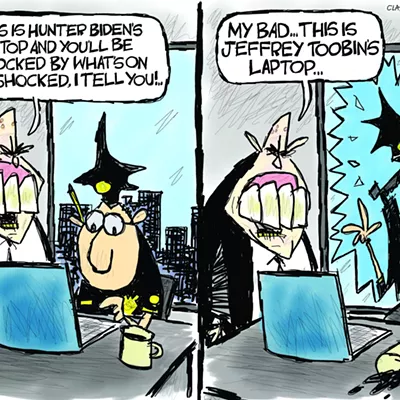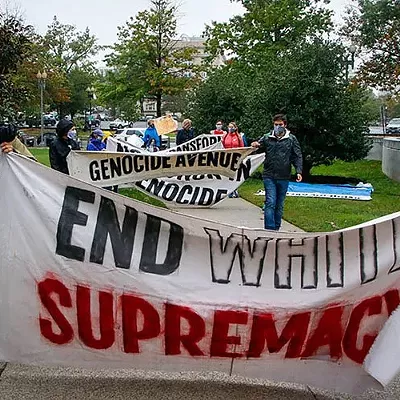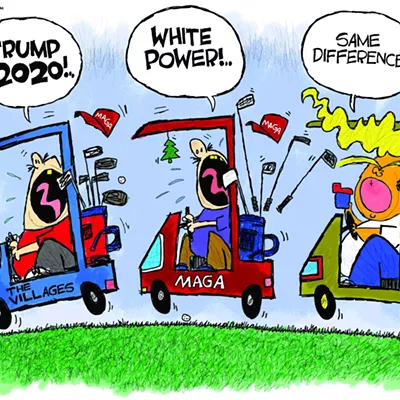Last December, the council adopted a business plan for the city's five courses in an attempt to reverse years of red ink. To erase a $2.5 million deficit, several steps were proposed. Two key components of the plan: significantly raise the cost of golf during the winter, while at the same time substantially increasing the level of service provided to golfers.
To accomplish the second goal, the plan proposed hiring 24 additional maintenance workers, but employing them as non-permanent employees. These new people would work 30 hours a week starting at $8.03 an hour and receive no fringe benefits.
The golfing proposal flew directly in the face of the so-called Living Wage Ordinance, which the council also adopted last year. That law called for many contractors doing business with the city to pay their employees at least $9 an hour if they didn't receive benefits.
City Parks and Recreation Director Dan Felix's promise to provide golfers a higher level of service on city courses if the hotly debated business plan was adopted required extra people. But the golf debt meant, as Felix summarized, "We can't afford to have full-time bodies in those jobs."
So what do José Ibarra, Steve Leal and Jerry Anderson, the three council members who voted for both the Living Wage Ordinance and the golf course business plan, think of this salary hypocrisy on the city's part? Ibarra and Leal didn't bother to return phone calls on the issue.
Anderson, however, immediately contacted Felix and quietly pushed to have the wages raised. Because of his efforts, the new golf course maintenance employees will be paid $9.35 an hour, thus eliminating the city's dual standard for these workers.
Replacing expensive full-time employees with lower paid part-timers wasn't the only controversial part of the business plan. Winter rates for 18 holes of golf by local residents were raised from $16.50 to $22 on three city courses and to $27 at the 36-hole Randolph/Dell Urich complex. Thus, a Tucsonan who wanted to play a round and drive a cart in the cooler months would be looking at a price tag of up to $45 for the fun and frustration of hitting a little white ball over an expanse of green toward a distant flag.
That proposed price hike infuriated many local golfers, who bitterly predicted it would kill golf in Tucson. Felix, on the other hand, said the increase was needed to reduce the golf debt while promising the steep price hike would be the last raise requested until 2004.
Six months later, the golf course business plan will be returning to the council later this summer for a review. So what's happened on Tucson's golf courses?
Frank Salbego, a local golfer who was opposed to the council's adoption of the business plan, says he's "in love with" the city's low summer rates of 18 holes, a cart and a hot dog for $15 to $18 on weekdays.
"The winter rates are still a travesty," Salbego says. "They are not fair for those of us who stay here during the summer, baking our brains out."
It's unlikely, however, that the winter rates will be changed when the council reviews the golf issue. "I honestly don't know if the winter rates will be looked at," says Ward 2 Councilwoman Carol West.
While the council may not look at the rate structure for city golf courses, it should carefully review the financial impact the new rates have had on the system. Even given almost perfect weather this past winter, the new rates didn't substantially improve the budgetary climate for public golf in Tucson. Instead, a small drop in play combined with several other factors meant the much higher rates resulted in only marginally increased revenues for the city's courses. All the bloodletting which occurred over the winter rate hike has not stopped the flow of red ink on the city's courses. Greater savings were actually made on the expense side of the ledger in the first four months of this year.
Felix, however, remains committed to the business plan. He points out that the physical improvements promised golfers either are done or will be accelerated in schedule. He says an advertising campaign for city courses will kick off this fall. The transition from independent contractors serving as course professionals to a system where the pros are city employees should also take place over the next few months.










